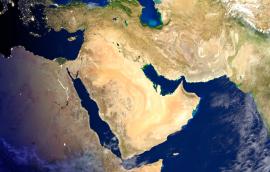False Hopes? Prospects for Political Inclusion in Rojava and Iraqi Kurdistan
By Mustafa Gurbuz, Ph.D., Arab Center, Washington D.C.
The Syrian civil war drastically changed the future prospects of Kurds in both Syria and Iraq. This brief examines the challenges that prevent a politically inclusive culture in Syrian Kurdistan—popularly known as Rojava—and Iraqi Kurdistan.
This brief and research paper are part of a project on pluralism and inclusion in the Middle East after the Arab Spring. The project is generously supported by a grant from the Carnegie Corporation of New York.
Mustafa Gurbuz September 5, 2018




